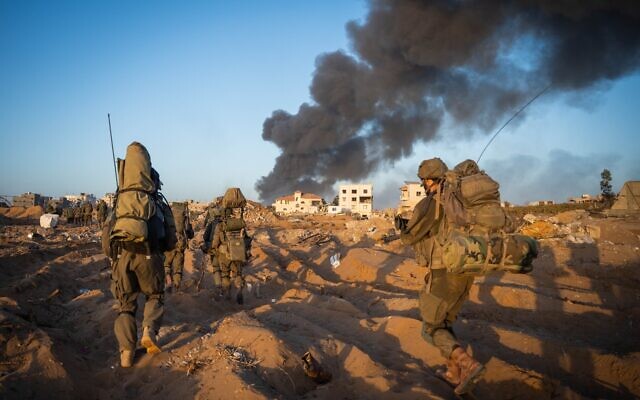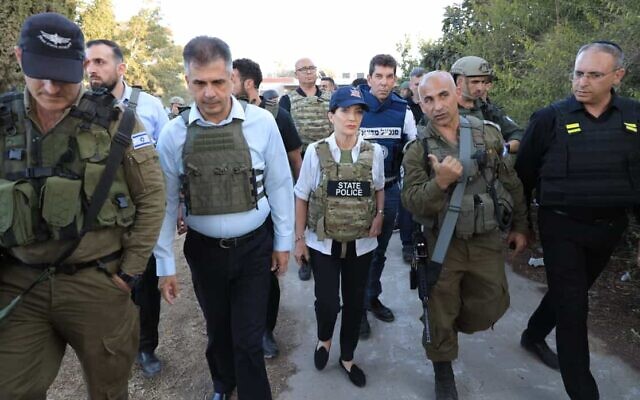



Israel will likely see international pressure to halt or curb its Gaza operation rise significantly within the next few weeks, Foreign Minister Eli Cohen said Monday.
In a briefing to reporters, Cohen said diplomatic pressure had begun to increase and that the “diplomatic window” for the IDF campaign in Gaza will likely remain open for another two or three weeks before it becomes significant.
Cohen did not say whether such pressure would include demands for a ceasefire or only greater action to aid civilians in the Strip.
He added that some of his diplomatic counterparts had made discreet requests for a ceasefire in conversation with him, but that such requests have not yet been made public.
Cohen added, however, that Israel is determined to continue with combat operations until it reaches its goals for the war, to eliminate Hamas and return the hundreds of hostages it holds.
He noted that the fact that Hamas is still holding some 240 hostages is lending international legitimacy to the war against the terror group, and generating greater global understanding of Israel’s insistence on continuing to fight.
“The world accepts that Israel will not stop until it frees the captives,” he said.
The foreign minister also stated that the ministry is working with European nations to create a “maritime humanitarian corridor” with Gaza to provide equipment and supplies to the territory, and that such a corridor might soon begin operating.
Cohen’s comments came as the IDF continued its campaign to destroy Hamas’s military capabilities and recover the hostages it took while perpetrating the October 7 atrocities in southern Israel, in which terrorists killed approximately 1,200 Israelis, mostly civilians.
Cohen said he has brought along family members of the captives in every meeting with international foreign ministers that he has hosted, as well as to meetings abroad, including at the UN in New York and with the EU in Brussels, and will do so Tuesday in a scheduled meeting with the International Committee of the Red Cross in Geneva.
The foreign minister noted that humanitarian concerns for Gaza are continually raised in his conversations with foreign diplomatic officials.
But he stressed that “since the beginning of the fighting, we have seen unprecedented international support,” pointing to the “convoy” of diplomatic visits to Israel identifying with and supporting the country.
He said there have been 45 such visits since October 7, including 30 heads of state and foreign ministers.
The foreign minister said his ministry was working to “reduce as far as possible the number of countries taking diplomatic steps against Israel,” and added that eight states so far had done so, including Bulgaria, Turkey, South Africa, Jordan, Colombia, Chile, Honduras, and Chad.
At the same time, Cohen said Palestinians had been pressuring other countries to sever ties with Israel, and that the ministry was in “close contact” with some 14 “wavering states” to prevent damage to the mutual relationships.
Cohen stressed that Israel would have no connection to Gaza after the war, saying there would be “no trade connections, no connection for the passage of people and workers.”
Before the war, thousands of Palestinian workers from Gaza entered Israel every day, while Gazan residents needing treatment in Israeli hospitals also were allowed to enter the country. Israel has also supplied water and electricity to the Hamas-run territory for many years, and continues to supply water to Gaza during the current conflict.
In order to make up the shortfall in the labor market. Cohen said he has signed two agreements with foreign countries, one of which is Sri Lanka, to bring thousands of foreign workers to Israel in the immediate future, and that similar agreements with other countries would follow quickly.


